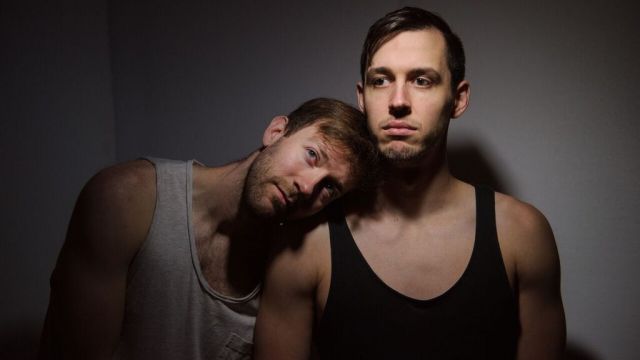Intoxication
Written by Christopher Bryant (who is also one of its three performers) and directed by Jessica Arthur, Intoxication is a play about anxiety and disconnection – that much is clear both from the program notes and the performances. However its structural shortcomings and odd directorial choices make it difficult to discern much else. Eschewing any solid narrative structure, it instead presents us with a series of vignettes from one female and two male actors, but it’s unclear whether any of them are playing distinctive characters as such. Instead they seem much of the time to be simply vessels for the words of the playwright, all in the same voice, interchangeable, sharing the dialogue around. Much of this dialogue is delivered so fast that it’s hard to make out, and a lot of it is ornately verbose to the point almost of parody, but earnestness, rather than humour, seems what is intended.
In between these dissertations on anxiety, self-doubt and lack of esteem, and the way in which social media is currently facilitating human disconnection, our performers alternately dance, writhe, spin like dervishes, stare off into space, or lie on or beside one of the three white blocks which make up the set, moving props around in a manner which I guess is meant to seem profound, but in reality was just perplexing. Again reading from the program notes I suppose this was meant somehow to symbolise various forms of intoxication, in which people are able to overcome their inhibitions against connecting (hence the title), but that should have been communicated by the performances.
More than anything this seemed like an interminable hour of self-deluded, self-obsessed, miserably insecure people, all bemoaning their insecurity, trying and failing at their sexual relationships. The fact that these relationships always failed because no one made the slightest attempt to empathise with the other party, instead focusing only on what they themselves wanted, seemed entirely lost on them – presenting this utter self-absorption as a new societal norm. (If this is the case, I’m glad I don’t know these people).
Then in the final scene, out of the blue, we were suddenly presented by a “summing up” moment in which the shortcomings of these attitudes were expressed by the cast. I was glad that was included as it gave the piece some kind of a point, but without any journey towards this truth, and without any defined characters to take the journey with, all we were left with really was another bald statement from the playwright.
Alex Paige
Subscribe to our E-Newsletter, buy our latest print edition or find a Performing Arts book at Book Nook.

